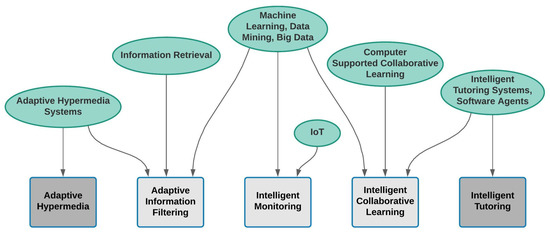Bioinformatics Tutor for Dummies
Bioinformatics Tutor for Dummies
Blog Article
Some Ideas on Bioinformatics Tutor You Should Know
Table of Contents4 Easy Facts About Bioinformatics Tutor ExplainedThe Ultimate Guide To Bioinformatics TutorFascination About Bioinformatics TutorGet This Report on Bioinformatics TutorOur Bioinformatics Tutor Diaries
Of the total amount participants associated with the training, 80% were trainees from public college organizations, while the remaining 20% originated from private institutions. To get approved for a certification of involvement, pupils were called for to participate in at the very least 90% of the total training hours. As an outcome of this demand, an impressive 95% of the participants effectively gotten their certifications, having not only satisfied the minimum presence criteria however also completed all assigned activities throughout the training.
Throughout the height of the COVID-19 pandemic, particularly in between June and August 2020, the project team was tasked with arranging specialized training in bioinformatics. This training was specifically targeted at trainees from the research study group Nucleus for Research study in Applied Computer at the Federal College of Pará (UFRA) The adjustment to remote understanding platforms due to the pandemic developed a chance to discover new mentor approaches and digital tools that improved both reach and effectiveness.
To react to the growing need in the computer and life scientific researches fields, a sophisticated course was presented in 2020 labelled Intro to Artificial intelligence. This program was designed to provide an easily accessible yet extensive overview of Artificial Intelligence strategies, especially as used in bioinformatics. The program was accomplished over three months, from October to December 2020, and was delivered totally online with the Google Meet platform. This virtual layout made it possible for involvement from students across Brazil, a lot of whom could not have had the opportunity to attend in-person sessions.
Bioinformatics Tutor Can Be Fun For Anyone
Approximately 50% of the total training hours were devoted to sensible activities where students constructed smart models and applications in an array of scientific domain names, consisting of genetics, molecular biology, and ecological information analysis. These platforms made it possible for pupils to involve in real-time data adjustment, model training, and algorithm testing.
Sixty of them were associated with different greater education establishments in the state of Pará, while the remaining twenty came from organizations found in 5 other Brazilian states. By introducing Artificial Intelligence in a relevant and practical context, the initiative offered to bridge the gap between concept and real-world application, offering trainees with a solid structure for future research study or work in the field.
The training campaign developed component of a more comprehensive academic outreach effort referred to her latest blog as the Bioinformatics when driving task. This job has, throughout the years, introduced loads of trainees to the globe of bioinformatics and computational biology. The events held under this umbrella campaign have taken place throughout multiple areas and years, as summarized in Table 1 (Listing of occasions, places, years, and total numbers of trainees and trainers)
Several of these groups, originally brought with each other by their engagement in training events, have because gone on to create independent scientific study in collaboration with local academic establishments. The training not just promoted scientific thinking within the context of bioinformatics however additionally sparked collaborative connections that extended beyond the training atmosphere.
7 Easy Facts About Bioinformatics Tutor Explained
The same team, omitting IH and RR, additionally acted as tutors why not try these out for the sensible click this link training modules. Funding for the job was given with the grant 88887.200562/ 2018-00 from CAPES.
The Federal College of Pará's Office of Research study (PROPESP/UFPA) likewise gave economic assistance, specifically for the manufacturing of the final manuscript. The writers declare no commercial or monetary disputes of passion that can have influenced the research study. All viewpoints and interpretations revealed in this write-up are only those of the writers and do not always mirror those of their respective institutions, the publisher, editors, or reviewers entailed in the publication process.

Getting The Bioinformatics Tutor To Work
From an instructional perspective, the training method utilized in the training was deliberately interactive. Courses were performed in a way that encouraged pupil involvement and conversation, surpassing rote memorization to explore just how ideas are developed, applied in every day life, and evaluated in scholastic settings. The training viewpoint focused on nurturing both strong and battling students, providing customized support, and building self-confidence via sustained mentorship and persistence.

Each group, containing about 36 participants, was sustained by three coaches-- many of whom were postdoctoral scientists with specific experience. These advisors not only aided develop the group tasks but also facilitated their execution, making sure that each research study concern was both suitably tough and appropriate. The goal was to provide a naturally practical context that individuals can check out with open-ended objectives and accessibility to curated datasets.
For additional understandings right into the methodology and end results of this project-based knowing approach, viewers are guided to S1 Text, that includes in-depth descriptions of the instructional structure, examination methods, and project themes used in the training sessions.
Fascination About Bioinformatics Tutor
Of the total individuals included in the training, 80% were students from public greater education and learning institutions, while the continuing to be 20% came from exclusive organizations. To qualify for a certification of participation, trainees were required to attend at least 90% of the complete training hours. Notably, past the pupils who signed up in the training sessions, 7 skilled teachers participated in providing the courses, while 3 devoted research study teachers coordinated the total training process. Approximately 50% of the overall training hours were dedicated to practical tasks where trainees developed smart versions and applications in an array of clinical domains, including genetics, molecular biology, and ecological data evaluation. The training not only fostered scientific thinking within the context of bioinformatics but additionally triggered joint connections that expanded beyond the training environment.
Report this page